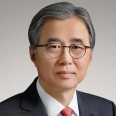*This is an opinion expressed in the Chosun Ilbo Op-ed on April 25, 2022.
While the period from 2017 to 2020 was an era of summit diplomacy among Chairman Kim Jong Un, President Moon Jae-in and President Donald Trump (K-M-T), today nuclear-capable North Korean missiles are flying over our heads. The 27 letters between Trump and Kim disclosed in the Washington Post journalist Bob Woodward’s book, Rage (2020), only scratched the surface but nonetheless offered some perspectives about how U.S.-North Korea summit diplomacy unfolded. We need to reflect upon and draw lessons from the mirage created by K-M-T summit diplomacy.
During the Trump administration, the South Korea-U.S. alliance suffered quite a bit of damage. Trump ignored the fact that alliances are about shared values. He seemed to view alliances as a cost-benefit transaction. In 1953, right after the Korean War, South Korea’s per capita gross domestic product was $67 dollars. Had the United States viewed its alliances in transactional terms, it would have had no reason to sign a mutual defense treaty with such a poor country.
After touring Camp Humphreys in Pyeongtaek on his first visit to South Korea in November 2017—which South Korea had covered 90 percent of construction costs at $9.7 billion— President Trump, on his way to Seoul by helicopter, told, “Look at these high-rises. Look at the highway infrastructure. Look at that train. Look at all of this. We’re paying for all of this. They should be paying for everything.” He added, “The military always tell you that the alliances with NATO and South Korea are the best bargain the United States makes but the military people are wrong … It’s a horrible bargain.” At the end of 2019, President Trump demanded that South Korea’s annual defense cost-sharing contribution be increased fivefold to $5 billion. On this, John Hamre, President of the Center for Strategic and International Studies (CSIS), criticized President Trump by noting that “USFK are not mercenaries who defend South Korea in return for money,” and that “the U.S. is stationing troops in South Korea for its own interests.”
It is evaluated that President Trump was more interested in commanding the media’s attention from the summit with Kim than in achieving North Korea’s denuclearization and that he was indulged in “self-grandiosity.” Evan S. Medeiros, who served as President Obama’s Asia policy advisor, said, “Kim will never give up his nukes,” and that “Kim played Moon and is now playing Trump.” President Trump and Chairman Kim exchanged letters and compliments. At the end of July 2018, Kim wrote Trump a letter saying that he wants to formally end the Korean War because the 1953 Armistice Agreement ensures merely a cessation of acts of hostilities and suggesting an end of war declaration. As North Korea attempted to create the mood for the withdrawal of U.S. troops by adopting the end of war declaration, Victor Cha, Korea Chair at the CSIS, pointed out that “[the declaration] can raise questions in the United States about if there’s peace, why don’t we bring the troops home?”
During the time of K-M-T summit diplomacy, the Moon administration rushed to complete the transition of wartime operational control (OPCON) without securing enough reconnaissance capabilities to monitor North Korean moves, interceptors, and precision strike weapons. During the meeting at Council on Foreign Relations (CFR) in New York on September 2018, President Moon said “Kim Jong Un is young, very candid and polite, treating the elders with respect … I believe that Kim Jong Un is sincere and he will abandon nuclear weapons in exchange of economic development.” Bloomberg News criticized President Moon for becoming Kim Jong Un’s top spokesman.
During South Korean National Security Advisor Chung Eui-yong’s visit to Pyongyang as the country’s Special Envoy to North Korea, Kim Jong Un allegedly told him that “North Korea would refrain from the use of not only nuclear weapons,” but also conventional ones, saying “How can I use nuclear weapon against my compatriot South Koreans?” If the Moon administration believed this pledge, it fell prey to the Stockholm Syndrome, “contested illness that hostages develop psychological bond with their captors during captivity, and accordingly taking the side of their captor.” Nuclear weapons are not only military but also political and psychological weapons, and Kim Jong Un is using this fact well.
Although it is imperative for the North Korean regime to exhibit accomplishments to justify its three-generation hereditary system from Kim Il Sung to Kim Jong Il and to Kim Jong Un, there have thus far been no visible accomplishments while North Korean people remain gripped by poverty and the cold. For Kim, the existence of a free and prosperous South Korea is a political threat, and therefore he might think that the stability of his regime can only be assured after achieving reunification under communism by nuclear weapons.
Given that South Korean President-elect Yoon Suk-yeol pledged to transform the South Korea-U.S. alliance into “a comprehensive strategic alliance,” South Korea and the United States are expected to be more closely aligned than ever. It is promising that, during the South Korea-U.S. Policy Consultation Delegation’s visit to the U.S. in the early April, a consensus was reached between the two sides on reactivating the “Extended Deterrence Strategy and Consultation Group (EDSCG).” Now, it is necessary to develop the consultation group into a “Nuclear Planning Group (NPG)” like NATO, redeploy some of the tactical nuclear weapons that were withdrawn from the country in 1991, and establish the “Nuclear Sharing” system.
* The view expressed herein does not necessarily reflect the views of the Asan Institute for Policy Studies.

 Facebook
Facebook Twitter
Twitter